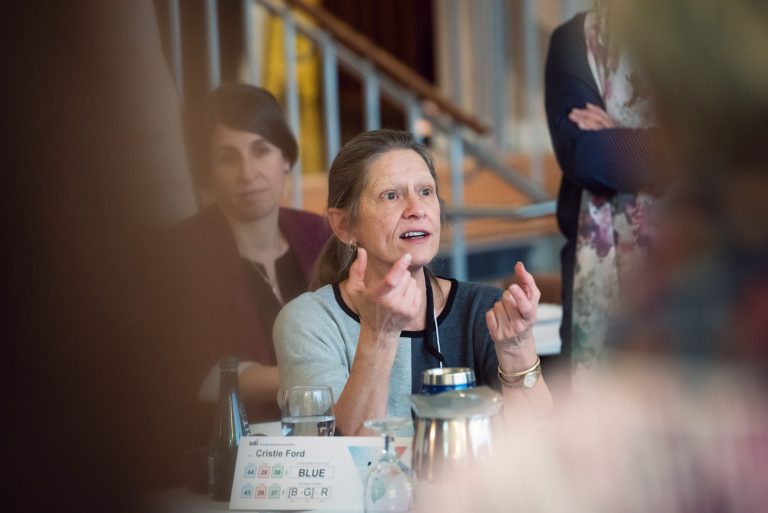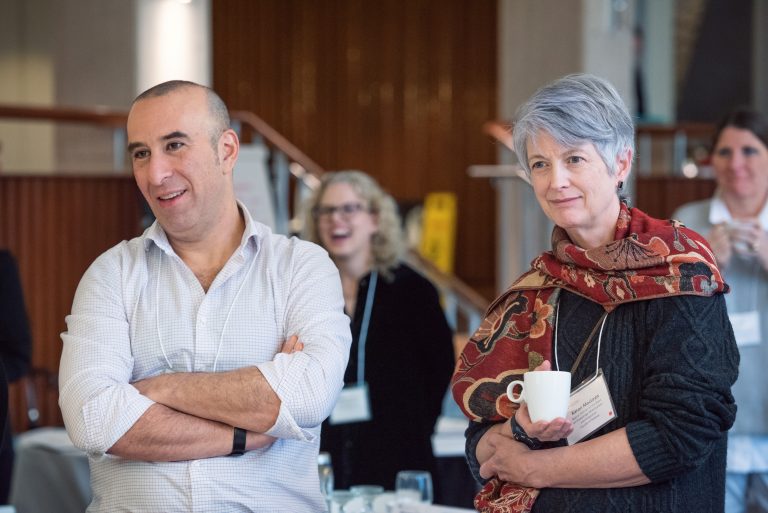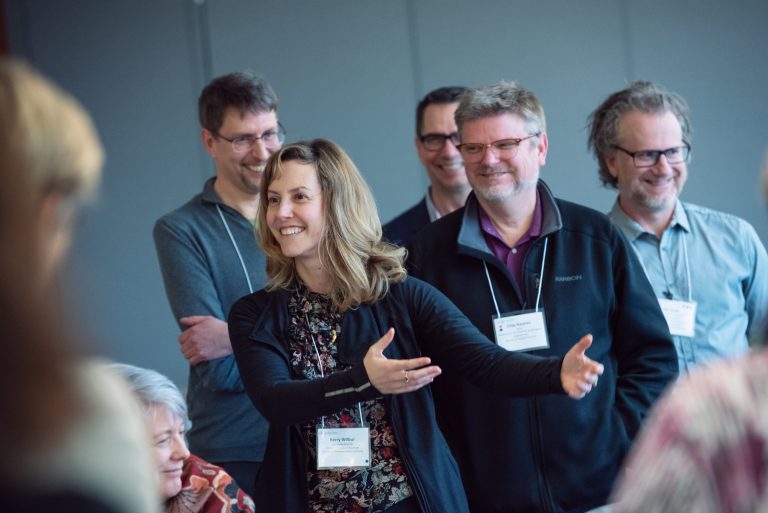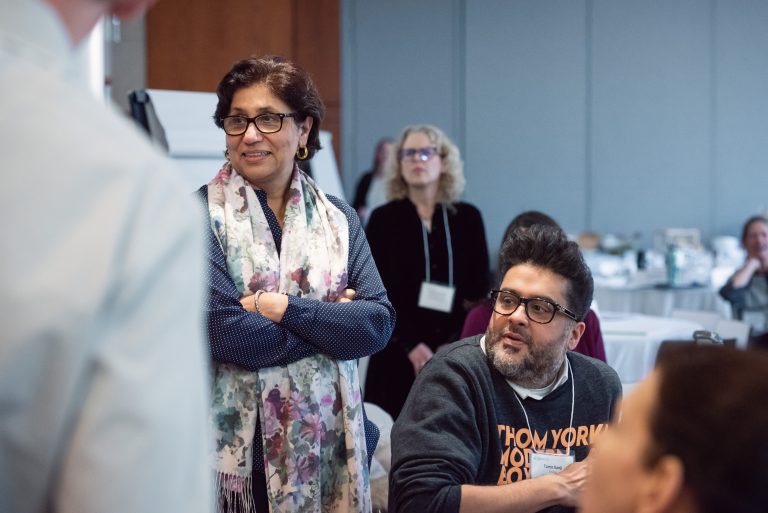At the start of their program last summer, about 30 UBC academic leaders gathered together on the Vancouver campus for the kick-off session of the Academic Leadership Development Program (ALDP).
This annual, cohort-based program aims to provide support to associate deans, department heads, program directors and other leaders in related roles at UBC. The program not only helps them navigate resources available to them, but also supports them in being collaborative and adaptive in their leadership styles.
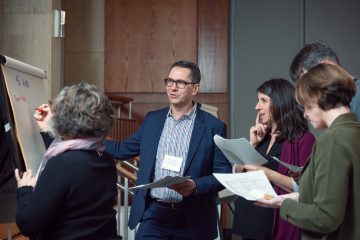
Academic leaders got together for day-long ALDP Boot Camp in December 2019. Photo: Martin Dee/UBC Human Resources.
During this kick-off session, the cohort members are invited to play a game—a game that represents what they will do as leaders. Participants each receive a handout describing a complex, real-world scenario they might encounter as an academic leader such as responding to a computer data breach, launching a new academic program and handling allegations of harassment or discrimination. Working together, they uncover all the issues found in their scenario and identify the information needed to resolve it while also ensuring that the people involved in the scenario feel supported and valued.
The game is a treasure hunt to explore the variety of resources available to them at the university. Most of the ALDP cohort members are new to their leadership roles, so they are still understanding how to navigate the university’s complex structure. They wonder what resources to lean on and who to approach for advice.
Luckily, all of those resources are embodied in the room, available to them on the spot: representatives from multiple units ranging from senior professionals from Office of the UBC Counsel, the University Counselling Service, Equity and Diversity, to Risk Management, Student Affairs are gathered ready to answer questions and offer clues on how leaders can approach the issue.
Having the resources in the room may seem like an easy solution to the game at hand, but this is not necessarily the case.
One of the planning team members reflects on this exercise, and shares that when issues emerge in the real world, they’re often multipronged and require various resources to be able to resolve them. The activity is successful in teaching leaders how to tap into the resources and break out of their normal patterns. They get to know the people across UBC available to support them as leaders, learn what they do and how they can collaborate with each other.
In addition to sharing resources, ALDP aims to enhance effectiveness and personal satisfaction of leaders, help participants develop awareness of their leadership styles, and identify tools and approaches that work for them. It also provides opportunities for new leaders to broaden their networks at the university.
Over 500 academic leaders have participated in ALDP since the program was first offered in 2006. The latest cohort, which included 55 academic leaders from 19 faculties and academic units, concluded their program in May.
Inspiring leaders to be their best selves
“I want to commit to being the best leader I can be to really enable the people on our teams to find meaning and fulfilment in their various roles,” explains Cheryl Holmes, Associate Dean Undergraduate Medical Education in the Faculty of Medicine, about her motivation to take part in ALDP.
Starting in August until the following May, cohort members attend full-day intensive sessions, workshops and have access to one-on-one coaching.
“I feel more comfortable as a leader to get out of the way and let great people do amazing work. Through ALDP and the executive coach I was assigned, I was able to identify my leadership values and a new winning formula,” she says.
Cohort members complete the program feeling more engaged with the UBC community, even when they have been part of the university for a long time. They feel more equipped to take on their leadership role and are also more connected to the community of academic leaders across campus.
“The experience gave me a fundamental understanding of the underlying processes and policies at the university,” says James Olson, Dean of the Faculty of Applied Science, who participated in the program in 2018.
“It also provided an overview of the people and resources available for a wide variety of situations. Mostly, it was an opportunity to get to know other new deans and executives, which has been exceptionally valuable,” he says.
Through ALDP, UBC is bringing to life Catalyst #4 of the Focus on People 2025 framework. That is, it is contributing to building a community of inspiring and diverse leaders who live the university’s values. In addition, it supports Strategy 1 (Great People) of the strategic plan: Shaping UBC’s Next Century as it highlights the importance of leadership development to advance the university’s goals.
